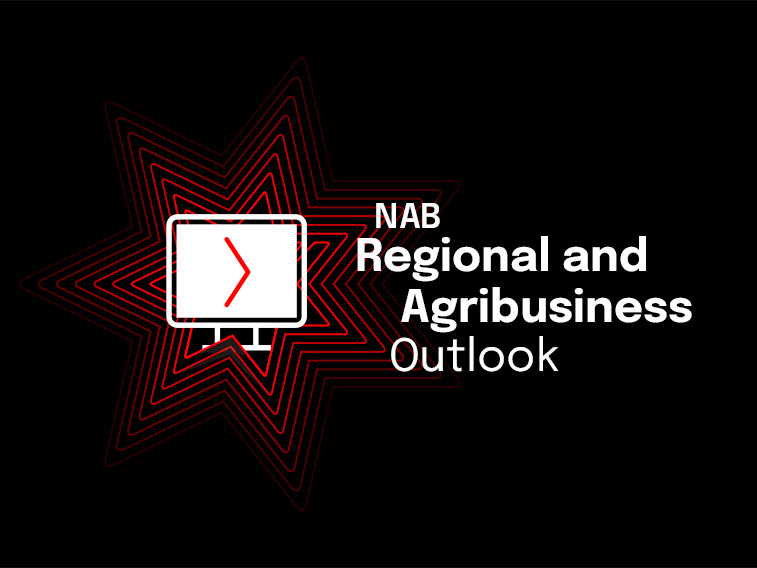The latest NAB Regional & Agribusiness webinar provides insights on the Australian & Global Economies, and a regional and rural property update. Watch the webinar here.

Webinar
Student mental health on the agenda for schools.

Conflict in the family home, bullying and popularity have emerged as key issues facing school students, according to new NAB research that explored anxiety facing young people.
NAB Economics, in collaboration with the bank’s specialised NAB Education business segment, has engaged with 91 independent schools across Australia, to provide insight into the concerns of students and the important role schools can play in helping them prepare for the future.
Overall, independent schools believe their students are coping only “moderately” well with their anxiety, however, primary school students – both boys and girls – are coping much better than secondary students.
The NAB survey showed that the biggest negative impact to student wellbeing related to family conflict or breakdown, scoring 8.4 out of 10 (where 10 is “very strong negative impact”).
Bullying (7.0) was next, followed by the health of loved ones (6.5), a student’s popularity (6.4), their friends (6.4) and peer pressures (6.4).
To help raise awareness of the importance of wellbeing among school students NAB is working with organisations such as SchoolTV, a world-first wellbeing platform featuring leading adolescent psychologist, Dr Michael Carr-Gregg.
The organisation addresses the modern day realities faced by schools and parents who increasingly need fact-based information around raising safe, happy and resilient young people.
“The NAB report confirms what the peer reviewed literature has been telling us – namely that 1 in 7 primary school students and 1 in 4 secondary students have significant psychological problems,” Dr Carr-Gregg said.
“While it is clear that schools are doing their best, through the dissemination of a variety of wellbeing programs, these students do not exist in a vacuum, and the missing piece for many schools is parent education.”
The Association of Heads of Independent Schools of Australia CEO, Beth Blackwood believes the NAB survey reinforces the initiatives taking place as part of a holistic philosophy to education.
“This NAB research recognises what we see in schools. Increasingly, there will be jobs such as Directors or Deputies of Wellbeing, which demonstrates the significance schools are placing on health and wellbeing of our young people not just today, but also into the future,” Ms Blackwood said.
NAB Economist Dean Pearson says the survey is focused on helping NAB Education customers (schools) better understand their students.
“We know that wellbeing and anxiety is an issue for primary and secondary students and it makes sense that around 9 in 10 independent schools have a “wellbeing” program in place. This report helps isolate some of the causes of anxiety so that schools can help remediate that problem,” Mr Pearson said.
“This is not only an issue for Australian schools; it’s a societal issue as well. Helping improve student wellbeing will have benefits for society, not just for schools, students and parents.”
NAB Head of Government, Education, Community Business Andrew Loveridge, said the survey provides a platform for greater awareness and prevention of the issues.
“While it’s very clear that school children are anxious, most schools are not only aware of this issue but proactive in attempting to manage it,” Mr Loveridge said.
“As one of the biggest lenders to the education sector, in addition to helping our customers understand issues through rich data and insights, we are also working with organisations such as SchoolTV who focus on the preventative education of mental health in young people.”
Dr Carr-Gregg added that increasingly parents were looking for better ways to access mental health information for young people.
“With increasing pressures and demands on parents, it is more difficult than ever for them to attend parent nights so alternative ways of engaging parents on important wellbeing issues must be found,” Dr Carr-Gregg said.
“SchoolTV allows schools to use technology to reach parents in a way that overcomes geographic and temporal barriers. It provides them with world class information delivered by Australia’s foremost experts in the field of child and adolescent mental health. It is an essential component of any school’s wellbeing plan.”
About the NAB Independent Schools Wellbeing Survey:
For further details, please see the attached documents:
© National Australia Bank Limited. ABN 12 004 044 937 AFSL and Australian Credit Licence 230686.